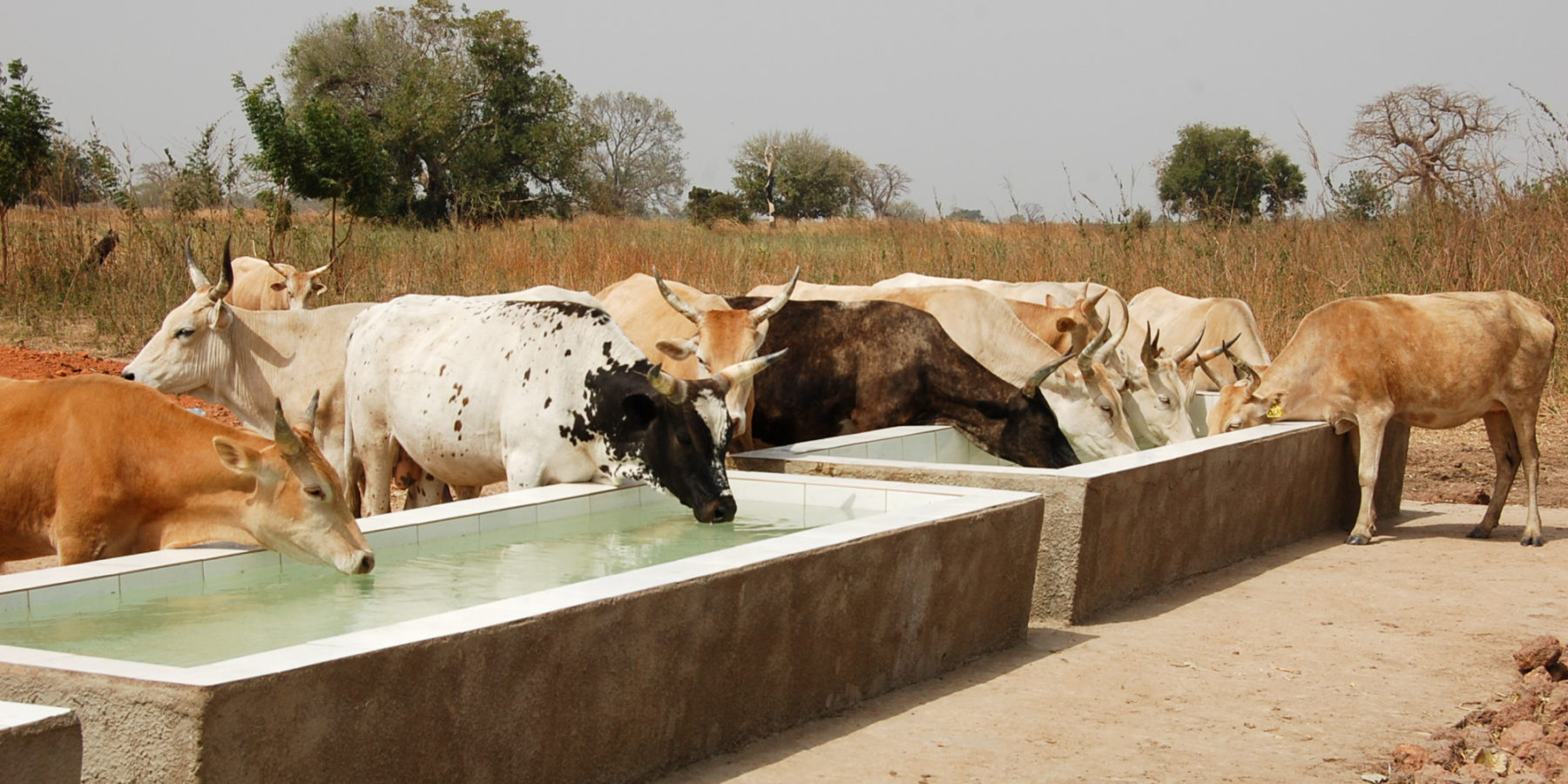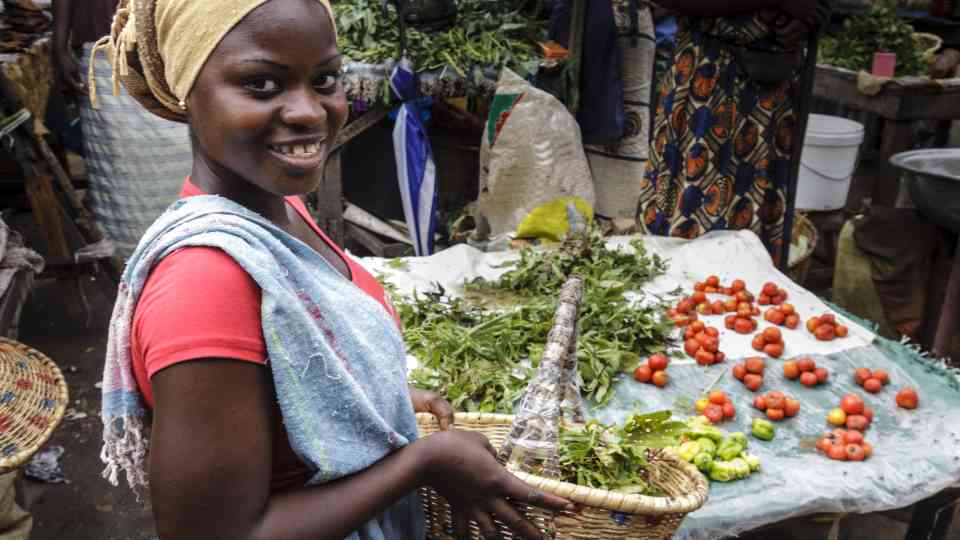The United Nations Office for Project Services (UNOPS)

Helping communities in West Africa improve food security
‘West African dwarf goat’, ‘Djallonké sheep’ and ‘N’dama cattle’ are not words that spring to mind when one thinks of food security, but these three species of livestock are vital to many local livelihoods.
That is why UNOPS has helped local communities develop a sustainable and integrated approach to livestock management, helping to preserve the wellbeing of these species, in an effort to reduce food insecurity.
Drought, demographic pressures and human activities, such as deforestation and agriculture, pose threats to many breeds of livestock in the region. Exotic livestock have increasingly invaded their natural habitat and large areas have been transformed into farmland to satisfy the high demand for wood, which is used for cooking.
With funding from the Global Environment Facility (GEF) and the African Development Bank (AfDB), the United Nations Development Programme (UNDP) developed an eight-year project to strengthen the genetic characteristics of the three species of livestock, while increasing their productivity and preserving their natural habitat.


Implemented by UNOPS, the project targets communities in four countries (The Gambia, Guinea, Mali and Sénégal) and represents a significant regional partnership between the AfDB, the GEF, UNDP and the Governments of these four participating countries.
The project has benefited some 2,500,000 people in the four countries. As part of the project, which began in 2007, UNOPS managed the construction of 18 livestock markets, 15 meat-processing facilities, 12 dairies, one dam, 106 kilometres of trails and numerous water points. 18 solar panels were also installed to power pumps at the water points, to ensure a sustainable form of energy.
With my accumulated savings I have been able to buy two cows and five goats, thanks to what I learned through this project
The project developed capacity-building activities for local organizations and authorities, independent breeders, infrastructure management committees and business associations (producers, buyers and sellers). Over 5,100 breeders were trained on environmental and livestock management, while 154 women received training on dairy processing.
In The Gambia, for example, UNOPS worked with the local community to find innovative ways to address food insecurity. Cheese production was identified as an opportunity to both reduce milk spoilage and create new jobs and, as a result, training sessions were organized to help local women produce cheese. Nearly 70 women formed a community association and together were able to open a small dairy, which has created a new source of income.


"With my accumulated savings I have been able to buy two cows and five goats, thanks to what I learned through this project," stated one female participant trained under the cheese production initiative in The Gambia.
Community engagement plans were developed in pilot locations across all four countries, to help improve the management of natural resources and preserve the species' natural habitats. Among the four countries, Guinea, Mali and Sénégal have also committed to allocate budgets to consolidate results after the close of the project.
"This is one of the most successful projects for the AfDB," said AfDB Environment and Natural Resources Division Manager, Ken Johm, adding that: "It was one of only two projects in Africa selected to be showcased in a video documentary produced by the AfDB, which was shown during the Rio+20 development conference."
Captions
- Top: (L) A training programme in the production of organic cheese was conducted for a local women’s association in Bignona, Sénégal. © UNOPS (R) Curdled milk produced by a micro-milk factory in Bignona, Sénégal, as part of efforts to locally improve food security. © UNOPS/Abdelkader Bensada
- Above: (L) A livestock drinking water point built by UNOPS in The Gambia. Water at the site is pumped thanks to solar energy. © UNOPS/Abdelkader Bensada (R) A new rural livestock market in Touba Mouride, Sénégal. © UNOPS













